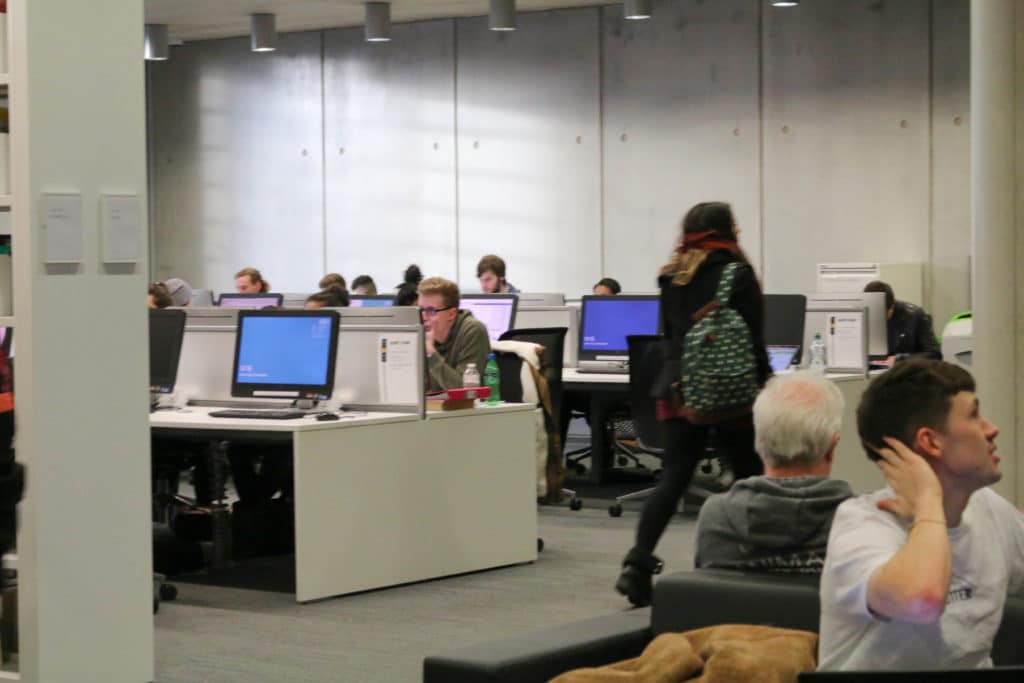A day in the life of a Data Steward
What is a Data Steward (DS), and how does the role fit within a library? Delft University of Technology has appointed dedicated Data Stewards within its faculties as part of an ongoing project until 2020.
We spoke to Kees den Heijer, Data Steward for the Faculty of Civil Engineering and Geosciences, to get some background on a day in the life in the role, the project, as well as his advice for other organizations looking to take on Data Steward roles.
What would be your best summary definition of the DS role? Can you give an example of the practical kinds of questions you’re being asked?
The Data Steward is the first point of contact for advice and support on all data/code related matters.
The majority of the questions concern data management sections (proposal phase) and data management plans (starting project phase). This is an opportunity to take it a step further than just answering the questions stated in the data management plan template, and discuss what data and code is part of the research and how can be strived after reproducibility of the research results. We are also asked questions about data storage options, data security (privacy), data sharing options and data publication requirements.
What does a day in the life of a DS look like?
A day in the life of a Data Steward has a lot to do with communication. This is with the researchers in the first place, ranging from bilateral meetings to project teams to department staff. As well as communication with researchers, there is a lot of interaction between Data Stewards both online (chat and email) and in person (weekly catch-up meetings).
In that way we share experience and use each others knowledge on issues that we do not deal with on a daily basis. In addition, Data Stewards attend many national and international meetings and conferences to exchange knowledge and experience with fellow data support professionals.
What does a day in the life of a DS look like?
A day in the life of a Data Steward has a lot to do with communication. This is with the researchers in the first place, ranging from bilateral meetings to project teams to department staff. As well as communication with researchers, there is a lot of interaction between Data Stewards both online (chat and email) and in person (weekly catch-up meetings). In that way we share experience and use each others knowledge on issues that we do not deal with on a daily basis. In addition, Data Stewards attend many national and international meetings and conferences to exchange knowledge and experience with fellow data support professionals.

Have you found that the DS role has changed in any way since the original vision when it was launched in 2018?
The role has slightly changed in the sense that coding advice/support is more explicitly included than it was foreseen. The reason is that many questions are related to code since data and (research software) code are interrelated and managing data includes managing code.
People are getting more and more aware of the available support by the Data Stewards. We see more questions coming in that are not covered by any of the other support services, but are also not really related to data stewardship.
The original objective of this project was to improve research culture not research compliance. How do you think you are viewed amongst the researcher community, and what, in your opinion, do researchers think you’re there to do?
Most questions are related to compliance. A data management plan is required (often by the funder) or data needs to be published openly (a journal requirement). The key, in my opinion, is to change culture gradually by providing help and advice on any, often compliance related, question coming in.
What have you found to be of the most use in
terms of your training background in the role so far?
My main advantage is having an MSc and PhD degree in the field of research of the people I’m serving. In addition, having hands-on experience with databases, coding and data management solutions helps a lot. Attending regular workshops or training on popular or emerging solutions or techniques also are important to keep up.

Does a Data Steward work for the Faculty or the library and how does the role fit within the organization?
At Delft University of Technology, each of the 8 faculties has its own dedicated Data Steward. They fall under the (management) support department of the faculty and report to the faculty executive secretary. The Data Stewardship coordinator is based in the library.
The project is funded until the end of 2020, now you’re over a year in, how valuable do you believe the role is and will it have a long-term place in the library?
I think Data Steward support in the faculty is certainly needed on the long-term. In addition, more dedicated project assistance, such as research data/software engineers and data managers, is needed more and more.
Do you have any advice to offer other organizations who might be thinking about taking on DS roles?
Keep the research and the researcher central. I mean this in two ways: 1) the data management solution should fit the research practice and not primarily the other around. 2) the Data Steward should stick to providing advice and support and not take over the responsibility of the researcher by, for instance, writing the data management plan.
